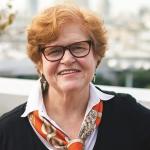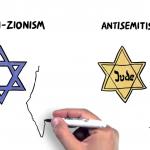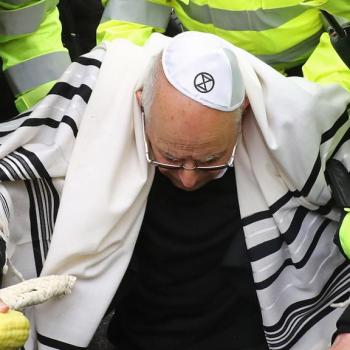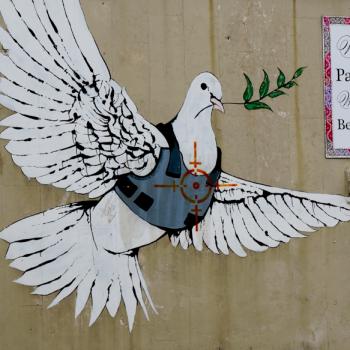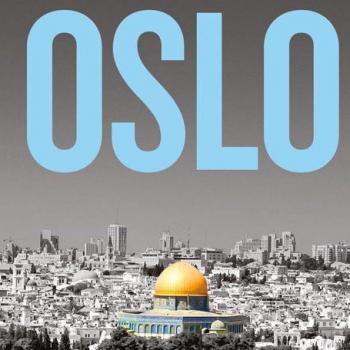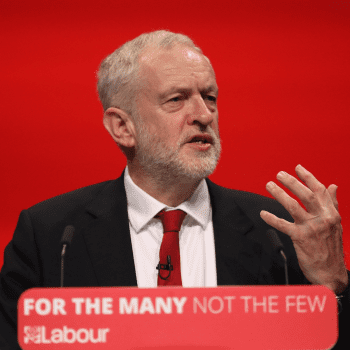Tonight (Friday 19th April) I’ll be celebrating the Jewish festival of Passover with my family. We’ll do it in our own way, using our own home-curated Haggadah which draws on some radical and contemporary Jewish thought to tell the story of the Exodus from Egypt and give it modern meaning and relevance.
The traditional Passover service commands us to think as if we ourselves had left ancient Egypt. We are right there witnessing the ten plagues. We are personally liberated by the Almighty who rescues us with a ‘strong hand and an outstretched arm’. We march with Moses across the parted Red Sea (our feet kept dry) and on towards Mt. Sinai to receive the Law. It’s all a beautiful and captivating religious myth which is deeply ingrained for anyone who’s experienced a Jewish upbringing.
But for a growing number of Jews around the world our relationship to the Palestinian people has become the greatest challenge to our Jewish identity and values. How can we celebrate our ‘feast of freedom’ and tell the story of our Exodus from the ‘narrow place’ of ‘Mitzryim’ while we deny, or stay silent, about the oppression of Palestine? It’s a profound challenge to our faith and the understanding of our own history.
Attempting to uphold a Jewish ideal of justice and freedom is not easy when you’ve just read that Israel has detained, kidnapped or jailed 1,000,000 Palestinians since 1948.
Compromised
Even the most progressive of Jewish charities find themselves compromised at Passover by the denial that surrounds the mainstream Jewish understanding of Israel/Palestine.
I’ve been collecting Haggadot for more than 20 years, especially alternative and radical re-interpretations of the traditional liturgy. This year I bought a copy of the HIAS Haggadah.
HIAS is an American Jewish charity which works with refugees and asylum seekers coming to the United States. It was established in 1881 as the Hebrew Immigrant Aid Society to assist Jews fleeing pogroms in Russia and Eastern Europe. You may recall that the murderous attack on the Tree of Life synagogue in Pittsburgh last year was targeted by a white supremacist because of its support for HIAS.
Reading through the HIAS Haggadah you can see the tremendous work it’s doing. It uses stories from Syria, Somalia, Ethiopia, Afghanistan, Congo, and many other troubled places to bring to life the modern meaning of oppression and liberty and the contribution that refugees have made to American society. The liturgy several times refers to the 68 million displaced people and refugees in the world today. But nowhere does it speak of the 5.4 million Palestinian refugees included in that number. Why not? What makes it so difficult to include their story amongst all the others that are told?
Revenge fantasies
The traditional Haggadah service book, which most Jewish families still use today, was compiled many hundreds of years ago and written from the perspective of a community that was already long-suffering. It records our annual longing for the Prophet Elijah to return and herald our redemption from oppression once again. It even recounts an argument between famous ancient rabbis who believed that far more than ten plagues were sent to smite the Egyptians. Rabbi Akiva insists, by interpreting the words of the Torah with exceptional creativity, that it was in fact 50 plagues that struck in Egypt and a further 250 unleashed against Pharaoh’s army at the Red Sea.
It’s a kind of revenge fantasy only appropriate to a people without power and still oppressed. Today we are in a very different place. Today, we have become Pharaoh to another people.
#NoPassoverZone
My friend and teacher Professor Marc Ellis, has declared this year a #NoPassover zone in his home in Florida. It’s an understandable position to take. Our recent history seems to have fatally compromised the very foundations of our faith. Is there a way back? Is there a way forward? Or will Jews in opposition to Zionism have to find an entirely new way to express their Jewish identity?
So does Palestine make celebrating the Jewish Passover impossible?
Yes and no.
It certainly makes it a lot harder. It demands you place yourself not only in the story of the Hebrews’ redemption but in the oppression caused today in the name of Jewish security and Jewish safety.
In truth we can never experience Palestinian suffering. Our attempt to even imagine what it is like is at risk from shallowness and tokenism. We are left with symbolic gestures like placing Palestinian olive oil on our seder plate alongside the traditional Passover symbols of bitter herbs and unleavened bread. But it’s better than celebrating Passover in a fog of denial.
For this year’s service, I’ve brought back and revised a poem I wrote five years ago. It feels appropriate to dedicate it to Marc Ellis.
A poem: ‘On the Impossibility of Passover’
On my journey to the Promised Land
My feet have become entangled
In the roots of upturned olive trees
I see homes turned to rubble
By a clenched fist and an outstretched arm
Blocking the path to righteousness
On this night, deliverance is held up at the checkpoint
And freedom is cut down by snipers
So what is there left to celebrate
With timbrels and dancing?
I ask my questions
Eat bitter herbs
And recount the plagues that we have sent
Exiled
Scattered
Occupied
Besieged
Humiliated
Arrested
Imprisoned
Teargassed
Crippled
Martyred
We have melted our inheritance
and cast ourselves a new golden calf to worship
And the words from Sinai
Are crushed beneath its hooves
There is no Moses to climb the mountain a third time
Elijah is detained indefinitely
The mission is lost
And the angels gather to weep
It is the first night of the Feast of Freedom
I open the Haggadah
Place olives on the Seder plate
And confront the impossibility of Passover
This year in Mitzryim
This year in the narrow place
Radical reappraisal
Celebrating Passover needs a radical reappraisal – but that’s just the beginning. How we see our Jewish selves, our relationship to Israel and the global Jewish community, and how we link our historical experience to others, and in particular the people of Palestine, is the real challenge.
Tonight, we’ll conclude our family meal with this passage written by Aurora Levins Morales, a poet and activist. I discovered her writing in the 2018 Jewish Voice for Peace Haggadah
“This time we cannot cross until we carry each other. All of us refugees, all of us prophets. No more taking turns on history’s wheel, trying to collect old debts no one can pay. The sea will not open that way. This time that country is what we promise each other, our rage pressed cheek to cheek until tears flood the space between, until there are no enemies left, because this time no one will be left to drown and all of us must be chosen. This time it’s all of us or none.”
So if you’re celebrating Passover, handle it with care and deep reflection. And if you’re deliberating choosing not to celebrate, then I understand completely.

